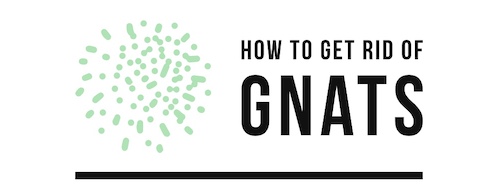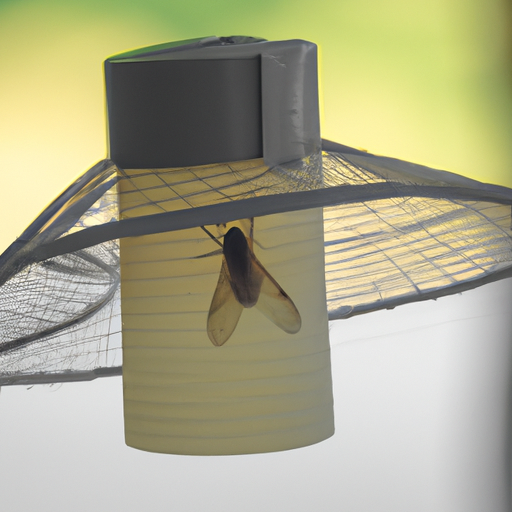How to Use Natural Repellents to Keep Gnats Away
Gnats are small, pesky insects that can be difficult to get rid of. Fortunately, there are several natural repellents that can help keep them away.
One of the most effective natural repellents for gnats is essential oils. Citronella oil, eucalyptus oil, and peppermint oil all have strong scents that gnats find unpleasant and will avoid. To use these oils as a repellent, mix 10-20 drops with 1 cup of water in a spray bottle and spray it around your home or yard where you’ve noticed gnat activity. You can also add a few drops to an essential oil diffuser to keep the area free from gnats.
Another natural way to repel gnats is by using garlic or onion juice as a spray. Simply blend up some garlic or onions in a blender with some water until it forms a liquid solution and then pour it into a spray bottle. Spray this mixture around your home or yard where you’ve seen gnat activity for an effective deterrent against them entering the area again.
Finally, you can also use herbs such as basil, lavender, rosemary, thyme and mint to repel gnats naturally. Place these herbs in areas where you’ve seen high levels of gnat activity such as windowsills or doorways for maximum effectiveness against them entering your home again.
By using these natural methods of repelling gnats from your home or yard you should be able to effectively keep them away without having to resort to chemical solutions which may be harmful for both humans and animals alike!
How to Create a Homemade Gnat Trap
Creating a homemade gnat trap is an effective and inexpensive way to rid your home of pesky gnats. Gnats are small, flying insects that can be found in many places, including kitchens, bathrooms, and near plants. To create a homemade gnat trap, you will need the following materials:
• A shallow bowl or container
• Apple cider vinegar
• Dish soap
• Plastic wrap
• A rubber band or tape
First, pour some apple cider vinegar into the bowl or container. The amount of vinegar should be enough to cover the bottom of the container. Next, add a few drops of dish soap to the mixture and stir it together with a spoon until it is well blended. The dish soap helps break down the surface tension on top of the liquid so that when gnats land on it they will sink in and drown.
After mixing together your ingredients, cover your bowl with plastic wrap and secure it tightly with either a rubber band or tape around its edges so that no air can escape from underneath it. Make sure there are several small holes poked into the plastic wrap for gnats to enter through; this will act as their entrance point into your trap!
Place your homemade gnat trap near areas where you have seen them congregating such as near plants or windowsills; this will help attract them towards your trap instead of other parts of your home. Leave it out overnight and check back in the morning to see if any have been caught! If so, dispose of them properly by throwing away both contents and container outside away from any living areas in order for them not to return again soon after being released back into their environment.
The Benefits of Planting Certain Herbs and Flowers to Repel Gnats
Gnats are small, pesky insects that can be a nuisance in the home and garden. Fortunately, there are several herbs and flowers that can help repel gnats naturally. Planting these herbs and flowers around your home or garden can provide a number of benefits.
One benefit of planting certain herbs and flowers to repel gnats is that it is an effective way to reduce their population without using harsh chemicals or pesticides. Herbs such as basil, lavender, mint, rosemary, sage, and thyme have strong scents that gnats find unpleasant. Similarly, marigolds have a strong scent which helps to keep away many types of pests including gnats. Planting these herbs and flowers around your home or garden will help create an environment where gnats are less likely to thrive.
Another benefit of planting certain herbs and flowers to repel gnats is that they can also attract beneficial insects such as ladybugs which feed on aphids and other pests in the garden. This helps keep the pest population under control while also providing natural pollination for plants in the area. Additionally, some of these plants may even produce edible fruits or vegetables which you can enjoy!
Finally, planting certain herbs and flowers to repel gnats provides aesthetic benefits as well since many of them are attractive plants with colorful blooms or fragrant foliage. This makes them great additions to any outdoor space whether it’s a patio area or flower bed!
In conclusion, planting certain herbs and flowers to repel gnats provides numerous benefits including reducing their population without using harsh chemicals or pesticides; attracting beneficial insects; providing natural pollination; producing edible fruits/vegetables; as well as adding aesthetic value with colorful blooms/fragrant foliage!
Tips for Keeping Your Home Clean and Free of Standing Water That Attracts Gnats
1. Keep your kitchen and bathroom areas clean and dry. Wipe down counters, sinks, and other surfaces regularly to prevent the buildup of food particles that can attract gnats.
2. Empty all standing water from around your home, including in flower pots, pet dishes, bird baths, or any other containers that may collect water.
3. Clean out gutters regularly to ensure they are not clogged with debris that can cause standing water to accumulate on the roof or near the foundation of your home.
4. Repair any leaky pipes or fixtures in your home as soon as possible to prevent excess moisture from accumulating in areas where gnats may be attracted to it.
5. Use a dehumidifier in damp areas such as basements or bathrooms to reduce humidity levels which can attract gnats into these spaces if left unchecked for too long.
6. Place screens over windows and doors so that gnats cannot enter through these openings into your home’s interior spaces where they may breed and multiply quickly if left unchecked for too long periods of time without proper maintenance measures taken against them promptly upon their arrival inside the house’s premises .
How to Use Essential Oils as an Effective Way to Repel Gnats
Gnats are small, pesky insects that can be difficult to get rid of. Essential oils can be an effective way to repel gnats and keep them away from your home or garden. Here is how you can use essential oils to repel gnats:
1. Choose the right essential oil: Certain essential oils have strong scents that are known to repel gnats, such as citronella, eucalyptus, lavender, peppermint, and tea tree oil. You may want to experiment with different combinations of these oils until you find one that works best for you.
2. Dilute the essential oil: Essential oils should always be diluted before use in order to avoid skin irritation or other adverse reactions. Mix a few drops of your chosen essential oil with a carrier oil such as almond or jojoba oil before applying it topically or using it in a diffuser.
3. Apply the mixture topically: To apply the mixture topically, simply dab some on your skin (avoiding sensitive areas) and around doorways and windowsills where gnats may enter your home or garden area. Reapply every few hours for maximum effectiveness against gnats.
4 Use a diffuser: If you don’t want to apply the mixture directly onto your skin, you can also use an aromatherapy diffuser with water and several drops of your chosen essential oil blend in order to disperse it throughout the room or outdoor area where gnats are present. This will help keep them away from any given space without having to reapply every few hours like when applied topically directly onto skin surfaces..
5 Monitor results: Monitor how well this method works for repelling gnats over time by checking for their presence periodically throughout different areas of your home or garden area after applying this method consistently over several days/weeks/months depending on how severe the infestation is initially.. If necessary adjust concentrations/dilutions accordingly until desired results are achieved!

